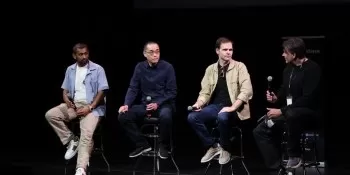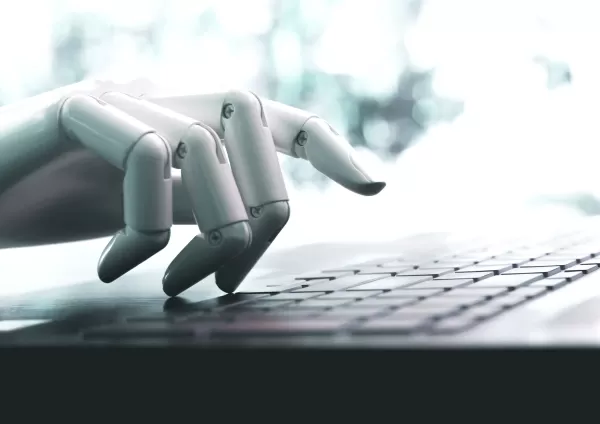OpenAI Yet to Release Voice Cloning Tool a Year Later
OpenAI's Voice Engine: A Long-Awaited Release?
Late last March, OpenAI introduced a "small-scale preview" of its AI service, Voice Engine, which promised to clone a person's voice using just 15 seconds of speech. Fast forward a year, and the tool is still in preview mode, with no clear timeline for a full launch—or even confirmation that it will ever see the light of day.
The hesitation to roll out Voice Engine widely could stem from concerns about misuse, or perhaps an attempt to sidestep regulatory scrutiny. OpenAI has faced criticism in the past for prioritizing flashy products over safety and for rushing to market ahead of competitors.
An OpenAI spokesperson told TechCrunch that the company is still testing Voice Engine with a select group of "trusted partners." "We're learning from how our partners are using the technology to enhance the model's utility and safety," the spokesperson explained. "It's been exciting to see its applications, ranging from speech therapy and language learning to customer support, video game characters, and AI avatars."
Voice Engine: The Journey So Far
Voice Engine, which drives the voices in OpenAI's text-to-speech API and ChatGPT's Voice Mode, creates remarkably natural-sounding speech that closely mimics the original speaker. It converts text into speech, constrained only by certain content guidelines. However, the rollout has been plagued by delays and shifting release dates from the start.
In a June 2024 blog post, OpenAI detailed how the Voice Engine model learns to predict the sounds a speaker would likely make for a given text, considering various voices, accents, and speaking styles. This allows the model not just to generate speech from text but also to produce "spoken utterances" that reflect how different speakers would voice the text aloud.
Originally, Voice Engine, then called Custom Voices, was set to join OpenAI's API on March 7, 2024, according to a draft blog post seen by TechCrunch. The plan was to initially offer access to up to 100 "trusted developers," prioritizing those developing apps with social benefits or showing innovative and responsible use of the technology. OpenAI had already trademarked the service and set pricing at $15 per million characters for "standard" voices and $30 per million characters for "HD quality" voices.
But at the last moment, the announcement was delayed. A few weeks later, OpenAI unveiled Voice Engine without a sign-up option, limiting access to a small group of developers they had been working with since late 2023.
"We hope to start a dialogue on the responsible deployment of synthetic voices and how society can adapt to these new capabilities," OpenAI stated in the late March 2024 announcement blog post. "Based on these conversations and the results of these small-scale tests, we will make a more informed decision about whether and how to deploy this technology at scale."
A Long Development Road
Voice Engine has been in development since 2022, with OpenAI showcasing its potential—and risks—to global policymakers in the summer of 2023. Today, several partners have access to Voice Engine, including startup Livox, which aims to help people with disabilities communicate more naturally. However, Livox CEO Carlos Pereira noted that they couldn't integrate Voice Engine into their products because it requires an internet connection, which many of their customers lack. "The quality of the voice and the ability to have the voices speak in different languages is unique—especially for our customers with disabilities," Pereira told TechCrunch via email. "It's really the most impressive and easy-to-use tool to create voices that I've seen... We hope that OpenAI develops an offline version soon."
Pereira has not received any indication from OpenAI about a potential launch date or plans to charge for the service, and so far, Livox has not had to pay for its usage.
In a June 2024 post, OpenAI suggested that one reason for delaying Voice Engine was the potential for abuse during the U.S. election cycle. The company has implemented safety measures, including watermarking to trace the origin of generated audio. Developers must obtain "explicit consent" from the original speaker and make "clear disclosures" to their audience that voices are AI-generated. However, OpenAI has not detailed how these policies will be enforced at scale, which could be a significant challenge.
OpenAI also hinted at building a "voice authentication experience" to verify speakers and a "no-go" list to prevent the creation of voices resembling prominent figures. These are ambitious projects, and any missteps could further damage OpenAI's reputation regarding safety initiatives.
Effective filtering and ID verification are becoming essential for responsibly releasing voice cloning technology. AI voice cloning was the third fastest-growing scam of 2024, leading to fraud and bypassing bank security checks as privacy and copyright laws struggle to keep pace. Malicious actors have used voice cloning to create deepfakes of celebrities and politicians, which have spread rapidly on social media.
OpenAI might release Voice Engine next week, or it might never happen. The company has mentioned considering keeping the service small in scope. But one thing is certain: whether for optics, safety, or both, Voice Engine's limited preview has become one of the longest in OpenAI's history.
Related article
 Nvidia's AI Hype Meets Reality as 70% Margins Draw Scrutiny Amid Inference Battles
AI Chip Wars Erupt at VB Transform 2025
The battle lines were drawn during a fiery panel discussion at VB Transform 2025, where rising challengers took direct aim at Nvidia's dominant market position. The central question exposed a glaring contradict
Nvidia's AI Hype Meets Reality as 70% Margins Draw Scrutiny Amid Inference Battles
AI Chip Wars Erupt at VB Transform 2025
The battle lines were drawn during a fiery panel discussion at VB Transform 2025, where rising challengers took direct aim at Nvidia's dominant market position. The central question exposed a glaring contradict
 OpenAI Upgrades ChatGPT Pro to o3, Boosting Value of $200 Monthly Subscription
This week witnessed significant AI developments from tech giants including Microsoft, Google, and Anthropic. OpenAI concludes the flurry of announcements with its own groundbreaking updates - extending beyond its high-profile $6.5 billion acquisition
OpenAI Upgrades ChatGPT Pro to o3, Boosting Value of $200 Monthly Subscription
This week witnessed significant AI developments from tech giants including Microsoft, Google, and Anthropic. OpenAI concludes the flurry of announcements with its own groundbreaking updates - extending beyond its high-profile $6.5 billion acquisition
 Nonprofit leverages AI agents to boost charity fundraising efforts
While major tech corporations promote AI "agents" as productivity boosters for businesses, one nonprofit organization is demonstrating their potential for social good. Sage Future, a philanthropic research group backed by Open Philanthropy, recently
Comments (11)
0/200
Nonprofit leverages AI agents to boost charity fundraising efforts
While major tech corporations promote AI "agents" as productivity boosters for businesses, one nonprofit organization is demonstrating their potential for social good. Sage Future, a philanthropic research group backed by Open Philanthropy, recently
Comments (11)
0/200
![FredLewis]() FredLewis
FredLewis
 August 2, 2025 at 11:07:14 AM EDT
August 2, 2025 at 11:07:14 AM EDT
Why's OpenAI dragging their feet on Voice Engine? A year later and still just a preview? Sounds like they're scared of the ethical mess this could stir up. 😬


 0
0
![PaulBrown]() PaulBrown
PaulBrown
 April 23, 2025 at 5:20:58 AM EDT
April 23, 2025 at 5:20:58 AM EDT
1年経っても、まだOpenAIの音声クローンツールはプレビュー状態です。残念ですが、もしリリースされればとても興味深いですね。


 0
0
![TimothyMiller]() TimothyMiller
TimothyMiller
 April 23, 2025 at 2:50:47 AM EDT
April 23, 2025 at 2:50:47 AM EDT
等了整整一年,OpenAI的语音克隆工具还是没出来,真是让人失望啊。不过听说功能很强大,希望能早日上线吧。


 0
0
![SamuelRoberts]() SamuelRoberts
SamuelRoberts
 April 22, 2025 at 9:46:04 PM EDT
April 22, 2025 at 9:46:04 PM EDT
Um ano depois e a ferramenta de clonagem de voz do OpenAI ainda está em fase de teste. É frustrante, mas se lançarem, será algo incrível.


 0
0
![WillMitchell]() WillMitchell
WillMitchell
 April 22, 2025 at 2:48:14 AM EDT
April 22, 2025 at 2:48:14 AM EDT
Lleva un año y todavía no han lanzado la herramienta de clonación de voz de OpenAI. Es una lástima, pero si llega a salir, será impresionante.


 0
0
![JamesWilliams]() JamesWilliams
JamesWilliams
 April 21, 2025 at 10:55:40 PM EDT
April 21, 2025 at 10:55:40 PM EDT
A year later and OpenAI's voice cloning tool is still in preview. It’s a bummer, but the potential is huge if they ever release it.


 0
0
OpenAI's Voice Engine: A Long-Awaited Release?
Late last March, OpenAI introduced a "small-scale preview" of its AI service, Voice Engine, which promised to clone a person's voice using just 15 seconds of speech. Fast forward a year, and the tool is still in preview mode, with no clear timeline for a full launch—or even confirmation that it will ever see the light of day.
The hesitation to roll out Voice Engine widely could stem from concerns about misuse, or perhaps an attempt to sidestep regulatory scrutiny. OpenAI has faced criticism in the past for prioritizing flashy products over safety and for rushing to market ahead of competitors.
An OpenAI spokesperson told TechCrunch that the company is still testing Voice Engine with a select group of "trusted partners." "We're learning from how our partners are using the technology to enhance the model's utility and safety," the spokesperson explained. "It's been exciting to see its applications, ranging from speech therapy and language learning to customer support, video game characters, and AI avatars."
Voice Engine: The Journey So Far
Voice Engine, which drives the voices in OpenAI's text-to-speech API and ChatGPT's Voice Mode, creates remarkably natural-sounding speech that closely mimics the original speaker. It converts text into speech, constrained only by certain content guidelines. However, the rollout has been plagued by delays and shifting release dates from the start.
In a June 2024 blog post, OpenAI detailed how the Voice Engine model learns to predict the sounds a speaker would likely make for a given text, considering various voices, accents, and speaking styles. This allows the model not just to generate speech from text but also to produce "spoken utterances" that reflect how different speakers would voice the text aloud.
Originally, Voice Engine, then called Custom Voices, was set to join OpenAI's API on March 7, 2024, according to a draft blog post seen by TechCrunch. The plan was to initially offer access to up to 100 "trusted developers," prioritizing those developing apps with social benefits or showing innovative and responsible use of the technology. OpenAI had already trademarked the service and set pricing at $15 per million characters for "standard" voices and $30 per million characters for "HD quality" voices.
But at the last moment, the announcement was delayed. A few weeks later, OpenAI unveiled Voice Engine without a sign-up option, limiting access to a small group of developers they had been working with since late 2023.
"We hope to start a dialogue on the responsible deployment of synthetic voices and how society can adapt to these new capabilities," OpenAI stated in the late March 2024 announcement blog post. "Based on these conversations and the results of these small-scale tests, we will make a more informed decision about whether and how to deploy this technology at scale."
A Long Development Road
Voice Engine has been in development since 2022, with OpenAI showcasing its potential—and risks—to global policymakers in the summer of 2023. Today, several partners have access to Voice Engine, including startup Livox, which aims to help people with disabilities communicate more naturally. However, Livox CEO Carlos Pereira noted that they couldn't integrate Voice Engine into their products because it requires an internet connection, which many of their customers lack. "The quality of the voice and the ability to have the voices speak in different languages is unique—especially for our customers with disabilities," Pereira told TechCrunch via email. "It's really the most impressive and easy-to-use tool to create voices that I've seen... We hope that OpenAI develops an offline version soon."
Pereira has not received any indication from OpenAI about a potential launch date or plans to charge for the service, and so far, Livox has not had to pay for its usage.
In a June 2024 post, OpenAI suggested that one reason for delaying Voice Engine was the potential for abuse during the U.S. election cycle. The company has implemented safety measures, including watermarking to trace the origin of generated audio. Developers must obtain "explicit consent" from the original speaker and make "clear disclosures" to their audience that voices are AI-generated. However, OpenAI has not detailed how these policies will be enforced at scale, which could be a significant challenge.
OpenAI also hinted at building a "voice authentication experience" to verify speakers and a "no-go" list to prevent the creation of voices resembling prominent figures. These are ambitious projects, and any missteps could further damage OpenAI's reputation regarding safety initiatives.
Effective filtering and ID verification are becoming essential for responsibly releasing voice cloning technology. AI voice cloning was the third fastest-growing scam of 2024, leading to fraud and bypassing bank security checks as privacy and copyright laws struggle to keep pace. Malicious actors have used voice cloning to create deepfakes of celebrities and politicians, which have spread rapidly on social media.
OpenAI might release Voice Engine next week, or it might never happen. The company has mentioned considering keeping the service small in scope. But one thing is certain: whether for optics, safety, or both, Voice Engine's limited preview has become one of the longest in OpenAI's history.
 Nvidia's AI Hype Meets Reality as 70% Margins Draw Scrutiny Amid Inference Battles
AI Chip Wars Erupt at VB Transform 2025
The battle lines were drawn during a fiery panel discussion at VB Transform 2025, where rising challengers took direct aim at Nvidia's dominant market position. The central question exposed a glaring contradict
Nvidia's AI Hype Meets Reality as 70% Margins Draw Scrutiny Amid Inference Battles
AI Chip Wars Erupt at VB Transform 2025
The battle lines were drawn during a fiery panel discussion at VB Transform 2025, where rising challengers took direct aim at Nvidia's dominant market position. The central question exposed a glaring contradict
 OpenAI Upgrades ChatGPT Pro to o3, Boosting Value of $200 Monthly Subscription
This week witnessed significant AI developments from tech giants including Microsoft, Google, and Anthropic. OpenAI concludes the flurry of announcements with its own groundbreaking updates - extending beyond its high-profile $6.5 billion acquisition
OpenAI Upgrades ChatGPT Pro to o3, Boosting Value of $200 Monthly Subscription
This week witnessed significant AI developments from tech giants including Microsoft, Google, and Anthropic. OpenAI concludes the flurry of announcements with its own groundbreaking updates - extending beyond its high-profile $6.5 billion acquisition
 Nonprofit leverages AI agents to boost charity fundraising efforts
While major tech corporations promote AI "agents" as productivity boosters for businesses, one nonprofit organization is demonstrating their potential for social good. Sage Future, a philanthropic research group backed by Open Philanthropy, recently
Nonprofit leverages AI agents to boost charity fundraising efforts
While major tech corporations promote AI "agents" as productivity boosters for businesses, one nonprofit organization is demonstrating their potential for social good. Sage Future, a philanthropic research group backed by Open Philanthropy, recently
 August 2, 2025 at 11:07:14 AM EDT
August 2, 2025 at 11:07:14 AM EDT
Why's OpenAI dragging their feet on Voice Engine? A year later and still just a preview? Sounds like they're scared of the ethical mess this could stir up. 😬


 0
0
 April 23, 2025 at 5:20:58 AM EDT
April 23, 2025 at 5:20:58 AM EDT
1年経っても、まだOpenAIの音声クローンツールはプレビュー状態です。残念ですが、もしリリースされればとても興味深いですね。


 0
0
 April 23, 2025 at 2:50:47 AM EDT
April 23, 2025 at 2:50:47 AM EDT
等了整整一年,OpenAI的语音克隆工具还是没出来,真是让人失望啊。不过听说功能很强大,希望能早日上线吧。


 0
0
 April 22, 2025 at 9:46:04 PM EDT
April 22, 2025 at 9:46:04 PM EDT
Um ano depois e a ferramenta de clonagem de voz do OpenAI ainda está em fase de teste. É frustrante, mas se lançarem, será algo incrível.


 0
0
 April 22, 2025 at 2:48:14 AM EDT
April 22, 2025 at 2:48:14 AM EDT
Lleva un año y todavía no han lanzado la herramienta de clonación de voz de OpenAI. Es una lástima, pero si llega a salir, será impresionante.


 0
0
 April 21, 2025 at 10:55:40 PM EDT
April 21, 2025 at 10:55:40 PM EDT
A year later and OpenAI's voice cloning tool is still in preview. It’s a bummer, but the potential is huge if they ever release it.


 0
0





























